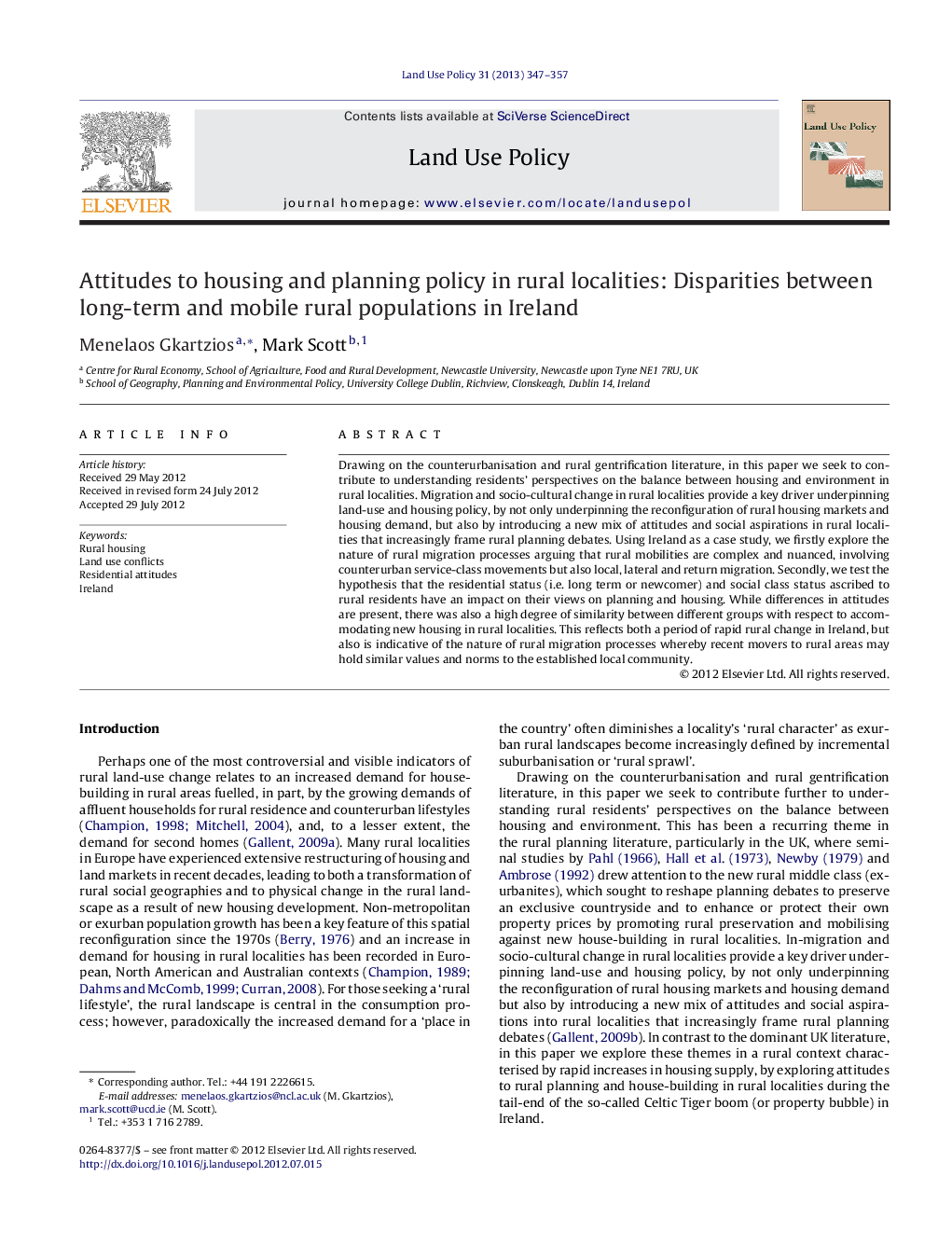| Article ID | Journal | Published Year | Pages | File Type |
|---|---|---|---|---|
| 93091 | Land Use Policy | 2013 | 11 Pages |
Drawing on the counterurbanisation and rural gentrification literature, in this paper we seek to contribute to understanding residents’ perspectives on the balance between housing and environment in rural localities. Migration and socio-cultural change in rural localities provide a key driver underpinning land-use and housing policy, by not only underpinning the reconfiguration of rural housing markets and housing demand, but also by introducing a new mix of attitudes and social aspirations in rural localities that increasingly frame rural planning debates. Using Ireland as a case study, we firstly explore the nature of rural migration processes arguing that rural mobilities are complex and nuanced, involving counterurban service-class movements but also local, lateral and return migration. Secondly, we test the hypothesis that the residential status (i.e. long term or newcomer) and social class status ascribed to rural residents have an impact on their views on planning and housing. While differences in attitudes are present, there was also a high degree of similarity between different groups with respect to accommodating new housing in rural localities. This reflects both a period of rapid rural change in Ireland, but also is indicative of the nature of rural migration processes whereby recent movers to rural areas may hold similar values and norms to the established local community.
► We investigate shifting social geographies in rural Ireland caused by rural migration processes. ► Rural migration is nuanced and includes counterurban, local, lateral and return migration. ► We examine the impacts of migration on attitudes towards housing and land use change. ► Similarities and differences across social groups are revealed. ► The results reflect the rapid pace of change and the nature of rural mobilities.
